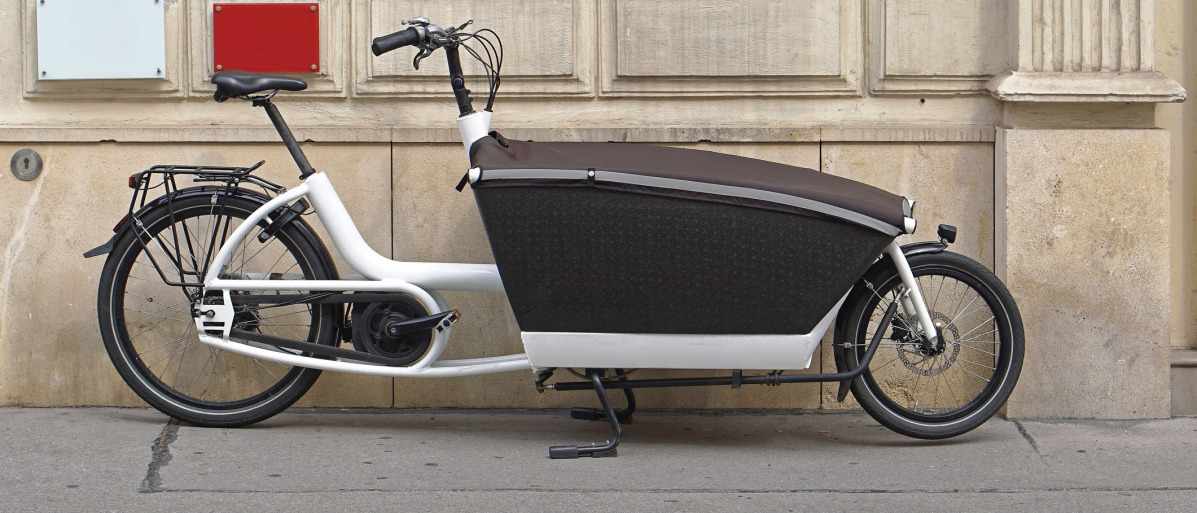Electric Cargo Bike Market To Reach US$ 3.7 Billion By 2028
17 April, 2023

IMARC Group’s latest research report, titled “Electric Cargo Bike Market: Global Industry Trends, Share, Size, Growth, Opportunity and Forecast 2023-2028,” offers a comprehensive analysis of the industry, which comprises insights on the electric cargo bike market share. The report also includes competitor and regional analysis, and contemporary advancements in the market. the global electric cargo bike market size reached US$ 1.9 Billion in 2022. Looking forward, IMARC Group expects the market to reach US$ 3.7 Billion by 2028, exhibiting a growth rate (CAGR) of 11.8% during 2023-2028.
Electric Cargo Bike Uses:
Electric cargo bikes, also known as freight bicycles or carrier cycles, are battery-powered bicycles that enable riders to transport heavier products than what would be possible with a traditional bike. It consists of an open or enclosed box, a wired basket, or a flat platform attached to either or both wheels, with nickel-based and lithium-ion batteries providing power and control. It is widely preferred over traditional bikes due to their slimmer profile, incredible speed, lightweight design, and eco-friendliness. It is suitable for various transportation needs, especially for short distances within cities, as they offer convenience, affordability, smooth riding, and portability. Some of the commercially available electric cargo bikes on the market include two, three, and four-wheeler models.
Competitive Landscape with Key Players:
• Accell Group N.V
• Amsterdam Bicycle Company
• Butchers & Bicycles Ltd
• CERO Inc
• Kalkhoff Werke GmbH
• Giant Bicycles
• Mahindra & Mahindra Limited
• Rad Power Bikes Inc
• Riese & Müller GmbH
• Worksman Cycles
• Xtracycle Cargo Bikes
• Yuba Bicycles
Electric Cargo Bike Market Development and Future Demand:
Significant growth in the automotive industry majorly drives the global market. The rapid expansion of the sector and growing engineering activities have increased demand for cost-effective, eco-friendly urban transportation options, including electric cargo bikes, which are one of the major factors driving the market. Along with this, several government initiatives to reduce noise and air pollution are encouraging consumers to switch from conventional bikes to electric cargo bikes, thus providing another boost. In addition, the incorporation of lithium-ion (Li-Ion) batteries, which offer high energy density, better voltage capacity, longer charge retention, and lower self-discharge, is stimulating the market.
Apart from this, the proliferation of e-commerce has enabled logistic companies to use electric cargo bikes for last-mile deliveries, is impacting the market favorably. Moreover, strategic partnerships between market players and extensive investments in research and development (R&D) to develop sleek and innovative designs are also contributing to the positive market outlook.
Breakup by Product Type:
• Two-wheeler
• Three-wheeler
• Four-wheeler
Breakup by Battery Type:
• Lithium-ion
• Lead-based
• Nickel-based
Breakup by End User:
• Courier and Parcel Service Providers
• Service Delivery
• Personal Use
• Large Retail Suppliers
• Waste Municipal Services
• Others
Breakup by Region:
• North America: (United States, Canada)
• Asia Pacific: (China, Japan, India, South Korea, Australia, Indonesia, Others)
• Europe: (Germany, France, United Kingdom, Italy, Spain, Russia, Others)
• Latin America: (Brazil, Mexico, Others)
• Middle East and Africa
Key Highlights of the Report:
• Market Performance (2017-2022)
• Market Outlook (2023-2028)
• Porter’s Five Forces Analysis
• Market Drivers and Success Factors
• SWOT Analysis
• Value Chain
• Comprehensive Mapping of the Competitive Landscape
Note: If you need specific information that is not currently within the scope of the report, we can provide it to you as a part of the customization.
